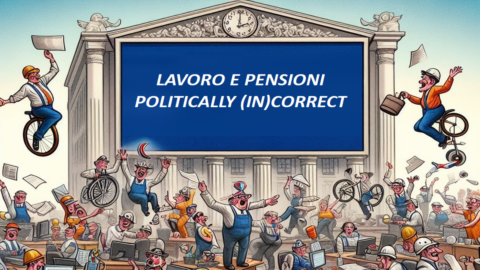La dictatorship of hi-tech on stock exchanges does it come to an end? The sharp descent of Apple Lossless Audio CODEC (ALAC),, both before and after Thursday's earnings alert amid lower-than-expected sales in China, adds to the woes of Facebook, under the weight of allegations of violation of user privacy, but also to those of softbank, the Japanese giant that has been steadily declining since the start of the recent IPO.
Thus find confirmation the forecast advanced by Alessandro Fugnoli to FIRSTonline in early November. “We are on the eve of a change of themes: I don't rule out months of weakness. But I wouldn't worry too much about the Internet giants, as long as earnings remain solid.
But on the markets there is a growing temptation to change horses, giving preference “value” stocks after the decline in recent months, which were difficult for banks and for manufacturing, hit by the war on duties. To contradict this thesis, however, one of the more free-range growth stocks thought about it on Friday: Netflix, up 7,3% after the promotion of Goldman Sachs, despite the air of siege surrounding the streaming giant against which the most formidable rivals, from Walt Disney to Amazon, are moving. Buyers are not frightened by a price/earnings ratio which, at these prices, has exceeded the threshold of one hundred times.
Meanwhile Apple certainly does not stand still, awaiting the fruits of the hated President Trump's trade diplomacy. To react to the landslide of the stock, down for twelve negative weeks on the last thirteen in which the stock market capitalization fell to 700 billion dollars from the historical record of over 1.150 billion reached in October (the correspondent of the entire capitalization of Piazza Affari burned ) Apple yesterday announced the signing of an agreement with Samsung to bring its audiovisual content to the world's leading TV manufacturer's new 'smart' televisions. The colossus, which until a few weeks ago almost indignantly refused any sort of collaboration.
Meanwhile, other growth freshmen are knocking on Wall Street's door, heedless (for now) of the lesser appeal of digital freshmen. Indeed, in 2019, the supply of technology stocks could break all records. But a lot will depend on self-driving cars. At the end of March, in fact, the two champions of self-driving mobility, that is Uber e Lyft, they should knock on the door of the Stock Exchange. And, if successful, to lead the way for a large group of billionaire start-ups: XXL, Pinterest, Slack, Palantir and, last but not least, airbnb, which is approaching the Nasdaq after upsetting the tourist offer market.
It will therefore be enough to wait a few months to get a precise idea of the balance of power between value stocks and growth stocks in what promises to be a challenging season. Uber alone was estimated, on the occasion of the last round of financing, to be worth 72 billion dollars, with the aim of entering the market with a collection of 25 billion and a valuation of 120 billion dollars, more than Facebook was valued (105 billion at the time of listing).
But the stakes are even higher: a flop of offers could indicate, as already happened in the initial season of the Internet, the momentary sunset of a season, which lasted almost a decade, of digital offers that have allowed the "unicorns" to raise more than a trillion dollars and to accelerate the "disruption ” of many sectors, from finance to manufacturing. Given the importance of what is at stake, there are those who predict a moment of respite, lest crowding does not result in a flop. But, on the contrary, the risk that the fad is coming to an end could push the investment banks to speed things up. Or to favor new financial alliances to dilute the risks.





